Bilsdale transmitter: New temporary mast to be switched on in February
- Published
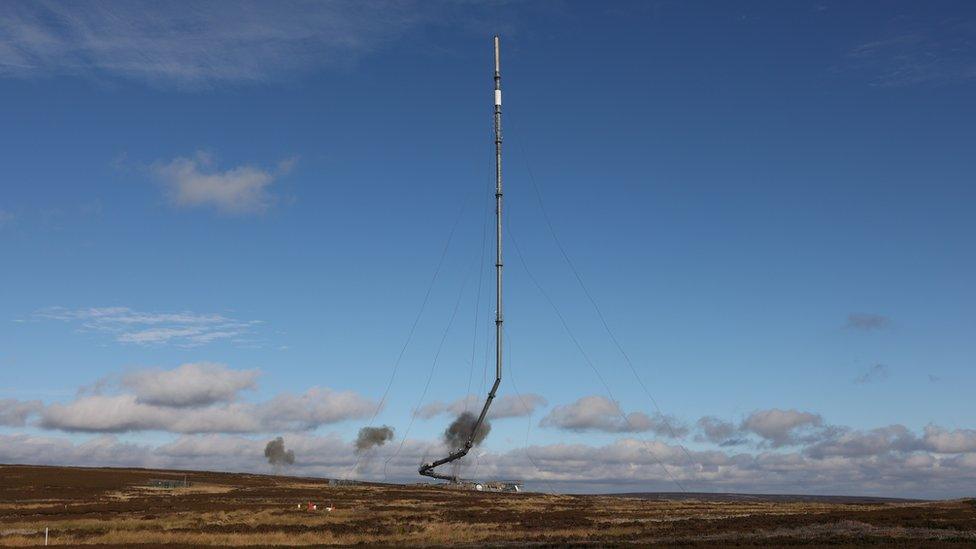
The original Bilsdale mast was damaged by fire and felled in a controlled explosion in October
A "more resilient" temporary television mast will be switched on next month to help improve the signal for hundreds of thousands of homes.
Properties in Teesside, County Durham and North Yorkshire have been reliant on an interim transmitter since the Bilsdale mast caught fire in August.
The second temporary structure will be installed while a permanent replacement is built.
Around 2,500 homes could be affected by the switchover in February.
Operator Arqiva predicts that half of those households - in the Blackhall, Seaham and Sunderland areas - rely on Freeview services and will lose their TV signal.
Homes which use Sky, Virgin and Freesat services will not be affected by the switchover, which will create a "signal shadow" where the line of sight is interrupted.
'More robust'
The company says it has already written to those in the so-called "not spots" who could potentially lose services and will provide engineers free of charge to help repoint their TV aerials.
The letters ask people to call the freephone helpline on 0800 121 4828 so engineers can visit homes as quickly as possible.
Arqiva hopes all properties affected will have their aerials redirected before the new interim mast is switched on.
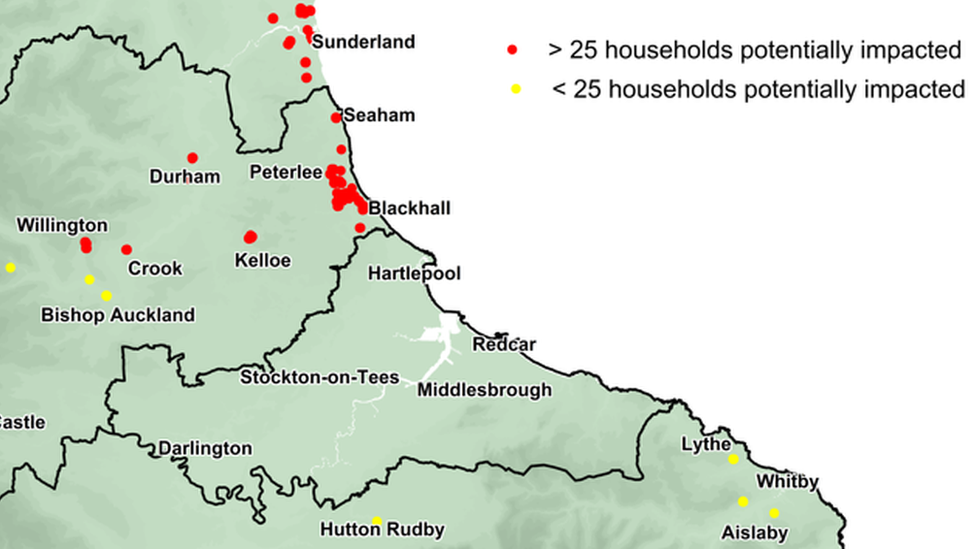
The majority of the homes affected will be along a strip of the County Durham coast
It estimates the second, 80m temporary transmitter, which will be "more robust and reliable in bad weather", will improve TV signals for more than 100,000 households across the region.
Arqiva said additional transmitter sites have been activated in Seaham and Sunderland to provide an alternative source of coverage for local households, while another, in Blackhall, is being explored.
The company has applied to build a 303m-high (994ft) permanent replacement Bilsdale mast, external, which would become one of the UK's tallest structures.
'Frustrating for viewers'
If planning permission is granted, it hopes the new mast - which it describes as a "significant engineering challenge" - will be in place by early autumn and become operational between then and spring 2023.
"The scale and complexity of the project in a remote and environmentally sensitive location, using a bespoke design, along with the impact of the weather at the moor top site, means the finish date for the project has to be an estimate," Arqiva said in a statement.
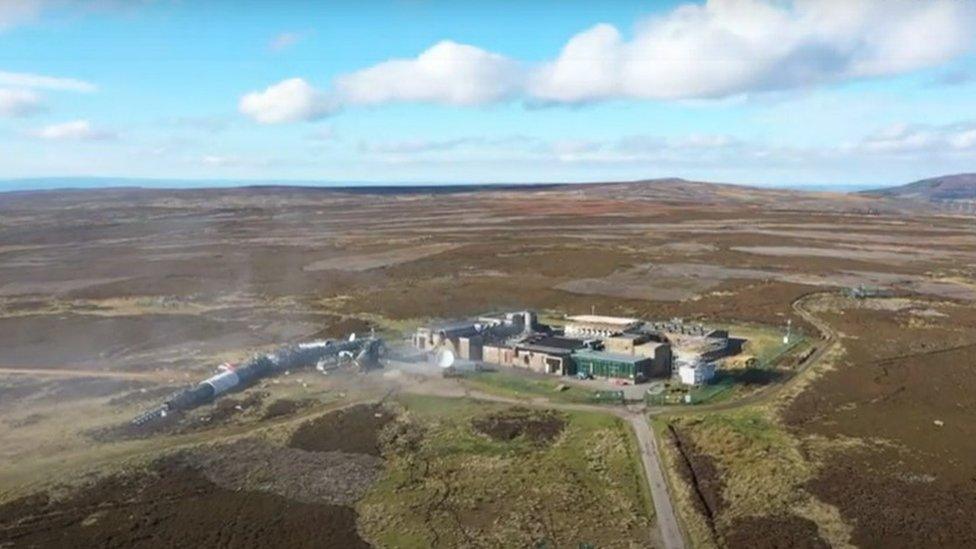
The old Bilsdale mast stood a remote area of the North York Moors
The operator's chief commercial officer, Shuja Khan, said it wanted to "restore and improve services to people across the region as quickly as possible".
"Today we have set out more details and likely timescales through 2022, including a huge construction project to permanently replace the old Bilsdale Mast," he added.
"While we are making real progress, we also know that this work can cause disruption, and that is frustrating for many viewers and listeners.
"We are working hard with our partners to restore services, and to support those people whose services are affected."
The old 314m (1,030ft) mast was felled in a controlled demolition last October after it was irreparably damaged.
Arqiva added it expects to provide an update on the cause of the fire "in the coming weeks" after a "detailed, forensic investigation".

Follow BBC North East & Cumbria on Twitter, external, Facebook, external and Instagram, external. Send your story ideas to northeastandcumbria@bbc.co.uk, external.
Related topics
- Published12 October 2021
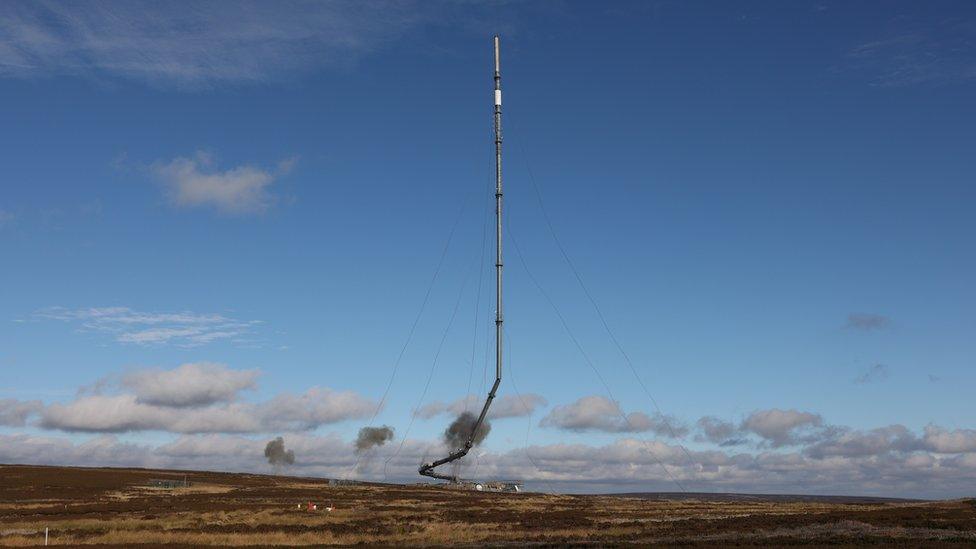
- Published6 October 2021

- Published4 October 2021
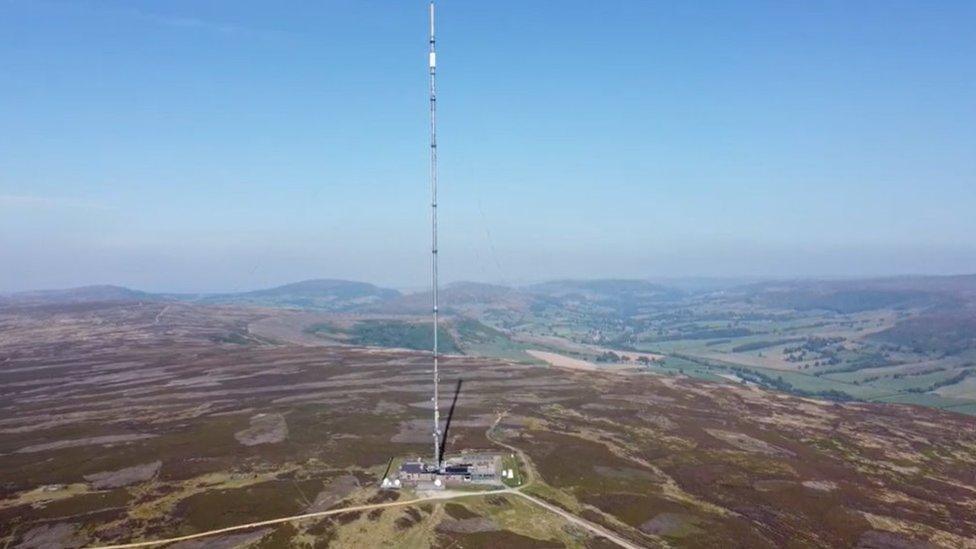
- Published1 October 2021

- Published29 September 2021
